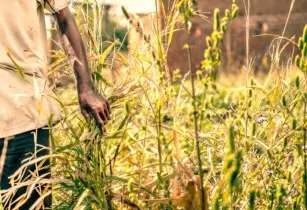The Food and Agriculture Organization of the United Nations (FAO), in partnership with the European Union (EU) and the government of the United Republic of Tanzania through the Ministry Agriculture, are about to start a four-year project ‘Strengthening plant health services in Tanzania for enhanced food safety’
The project seeks to address administrative and technical limitations relevant to plant health that deteriorate agricultural trade, endanger food security and food safety. The project will be implemented nationwide in mainland Tanzania and Zanzibar. Direct beneficiaries will be Plant Health Services, local producers and traders including women and youth.
Dr Patrice Talla, FAO sub-regional coordinator for southern Africa and FAO representative for Tanzania, recognised the EU citing the importance of the action not just to Tanzania but also to the region. Dr Talla reiterated, “We believe that through increasing capacity of the Tanzanian authorities to control pests of quarantine importance, toxic pesticide residues and the improvement in produces’ traceability and safety certification, Tanzania will gain more access to markets within southern Africa, and this will open doors to more trade and increased income for farmers.”
In Tanzania, FAO is implementing the project in tandem with the Ministry of Agriculture. One of the key objectives of the project is to increase the resilience of livelihoods to threats and crises. “By establishing systems for traceability and surveillance and improving inspection capacity, the project will impart resilience to pests through providing early warning and improve prospects for market access,” added Charles Tulahi, assistant FAO representative for programmes in Tanzania.
Through the EU funded action, plant health and pesticide laboratories in Tanzania will be fully equipped to enable detection, diagnosis and traceability. Additionally, a strong pest surveillance system will be put in place and experts will be trained in implementation of international standards for pest and pesticide regulations. Thus, no pest of quarantine importance nor toxic pesticide residue will be exported from Tanzania.
“The adoption of strict surveillance protocols and sanitary certification will allow quality agricultural export products from Tanzania to access exigent and lucrative markets abroad. At the same time, Tanzanian consumers will benefit from safer and healthier products,” head of the European Union Delegation to Tanzania and the East African Community (EAC), ambassador Manfredo Fanti said.





